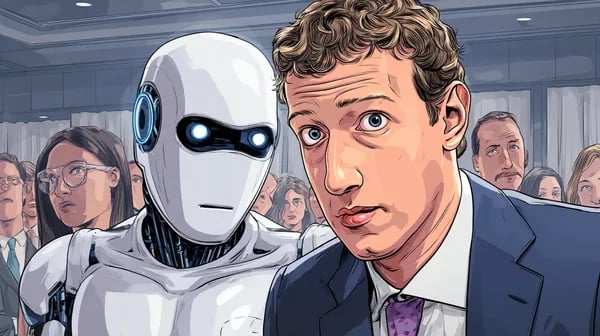The Billion-Dollar Battle for AI Brains: Inside Tech's Talent Gold Rush
I've been tracking the AI job market for years, and honestly, what's happening right now is mind-blowing. The competition for AI talent has reached fever pitch, with compensation packages that sound like typos.
Get this - Meta reportedly offered someone a $1.25 billion contract over four years. That's $312 million annually! And the craziest part? The person turned it down. Seriously.
This revelation came from Daniel Francis, founder of Abel (an AI startup that uses artificial intelligence to compile police reports). He shared on social media that Meta was hunting for top-tier AI talent with billion-dollar incentives. His update was refreshingly blunt: "Person said no, btw."
Why would anyone say no to that kind of money? In my experience analyzing AI recruitment strategies, it's often about more than cash. The person probably already had significant wealth and valued autonomy over another golden handcuff situation.
What's really happening in the AI talent market is something I'd call "knowledge acquisition" rather than traditional hiring. Companies aren't just paying for what you can build - they're buying what's in your head. As Francis put it, "IP is in people's heads [right now]."
AI researcher Roon backed up these numbers, calling them "acquihires" - where companies acquire talent specifically for their knowledge. Once that knowledge transfers to the company (through training models or documenting processes), the individual's unique value can actually decrease. Kind of brutal, right?
The AI hiring competition isn't limited to Meta. OpenAI's Sam Altman mentioned that Meta tried poaching his staff with $100 million signing bonuses. But he proudly noted, "none of our best people have decided to take them up on that." Meanwhile, Elon Musk's xAI is projected to lose $13 billion next year, and Scale AI just laid off 200 people shortly after Meta invested $14 billion there.
The AI salary trends remind me of professional sports drafts. Exceptional talent commands incredible signing packages, creating a high-stakes bidding war for brainpower. Despite offering multi-million dollar salaries, Meta still struggles with AI talent retention.
What does this mean for the broader AI job growth landscape? I think we're seeing a temporary bubble in AI executive search practices. The industry believes the future of AI exists in the minds of a select few, and they're willing to pay anything to capture it.
But can any single person really be worth $1.25 billion for four years of work? That's the billion-dollar question in today's AI talent acquisition game.
The stories coming out of Silicon Valley now make the dot-com era excesses look quaint by comparison. And yet, the fact that someone walked away from Meta's offer shows that in the AI job market, money isn't everything.



